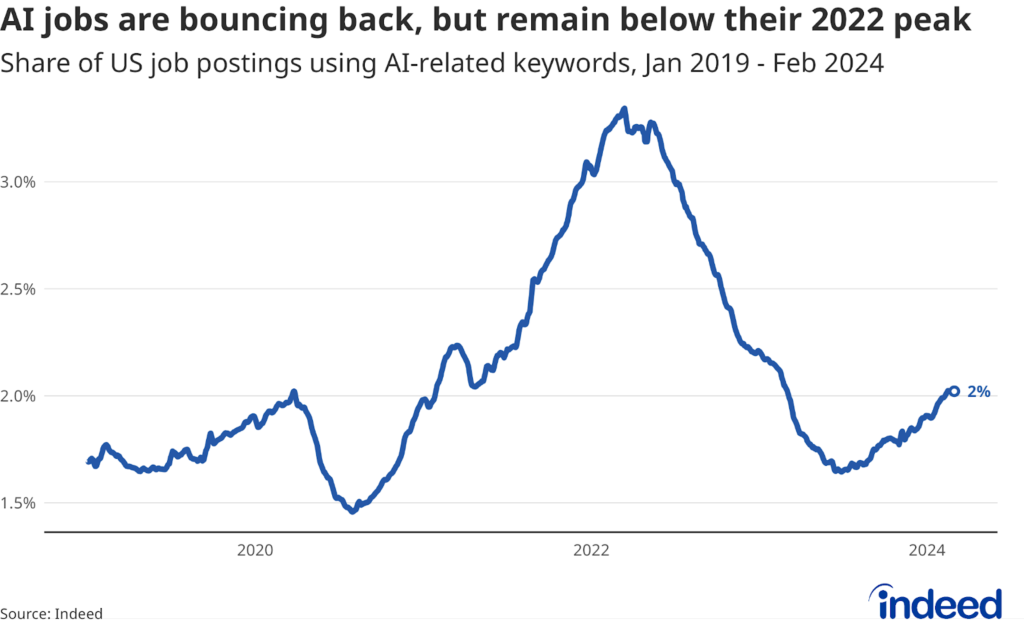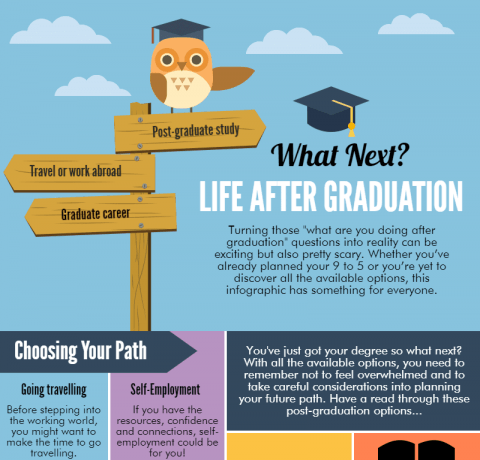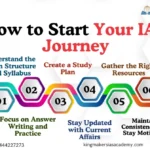Deciding your career after your 12th or graduation can be exciting and overwhelming at the same time. With so many choices now, it’s important to be strategic and be sure that what you’re pursuing is what you can do well and that the market needs. We’ll cover different career options, trends, and real-life advice to guide you in making one of the most significant decisions of your life.

Understanding Today’s Career Landscape
The labor market has changed dramatically as a result of technological progress, globalization, and changing work practices. Indeed, new figures suggest some areas have “significant growth potential” and fresh graduates will be in demand.
Top Career Options After 12th Science:
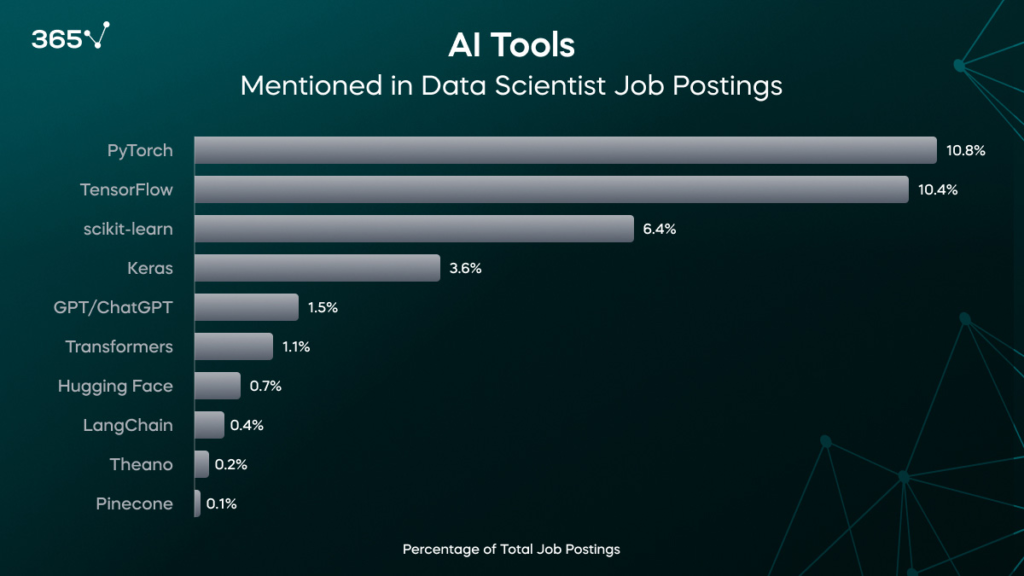
- Engineering
- Computer Science & Engineering
- Mechanical Engineering
- Civil Engineering
- Electronics & Communication Engineering
- Electrical Engineering
- Aerospace Engineering
- Medical Field
- MBBS (Bachelor of Medicine and Bachelor of Surgery)
- BDS (Bachelor of Dental Surgery)
- B.Sc. Nursing
- B.Pharm (Bachelor of Pharmacy)
- Medical Lab Technology
- Emerging Fields
- Artificial Intelligence and Machine Learning
- Data Science
- Bioinformatics
- Robotics
- Biotechnology

Top Career Options After 12th Commerce:

- Traditional Commerce Paths
- Chartered Accountancy (CA)
- Company Secretary (CS)
- Cost and Management Accountancy (CMA)
- Bachelor of Commerce (B.Com)
- Bachelor of Business Administration (BBA)
- Financial Sector
- Investment Banking
- Financial Analysis (CFA)
- Actuarial Science
- Banking Services
- Insurance Management
- Modern Commerce Fields
- Digital Marketing
- Business Analytics
- E-commerce Management
- International Business
- FinTech

Top Career Options After 12th Arts:

- Legal Fields
- Bachelor of Laws (LLB)
- Integrated BA LLB
- Legal Studies
- Media and Communication
- Journalism
- Mass Communication
- Content Creation
- Digital Media
- Design and Creative Arts
- Fashion Designing
- Interior Design
- Graphic Design
- Fine Arts
- Performing Arts (Dance, Music, Theater)
- Humanities and Social Sciences
- Psychology
- Sociology
- Political Science
- International Relations
- Social Work
- Hospitality and Tourism
- Hotel Management
- Tourism Studies
- Event Management
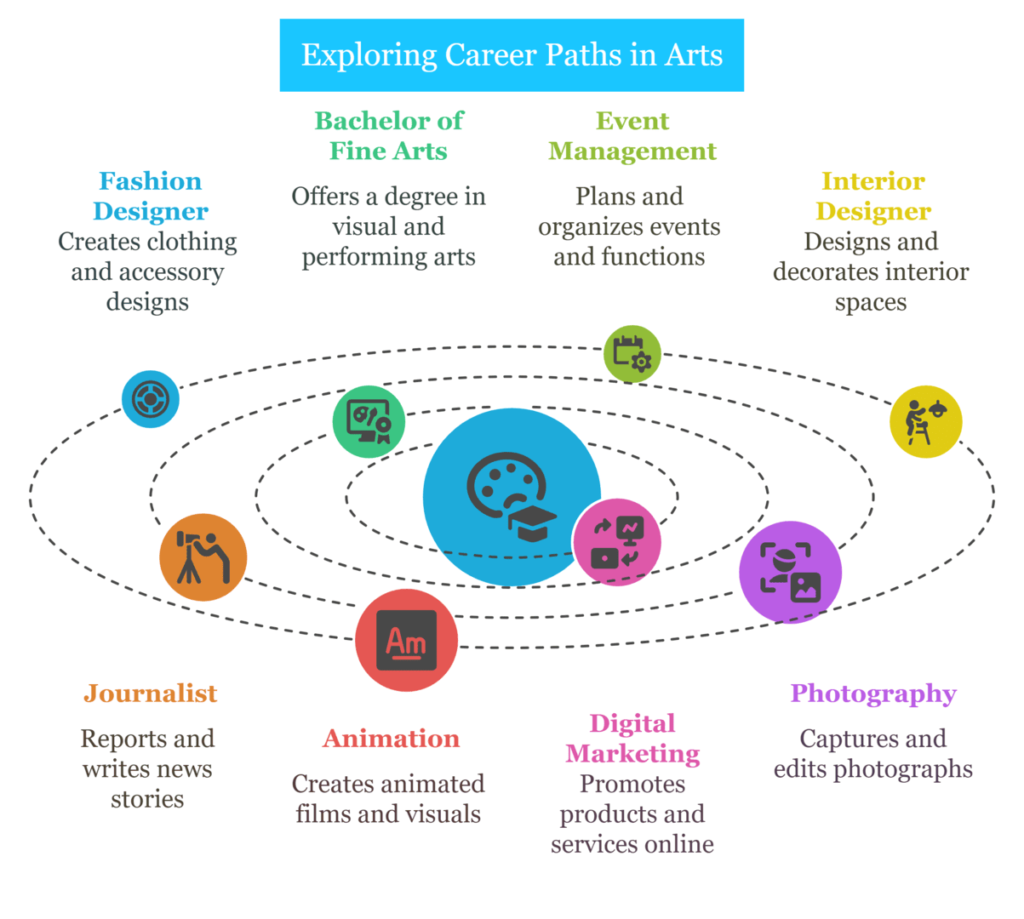
For graduates navigating the job market in 2024-25, here are some of the top career options:

Fastest Growing Careers After Graduation:
- Technology & Digital Fields
- Data Scientists (36% growth rate, median pay: $112,590)
- Information Security Analysts (33% growth rate, median pay: $124,910)
- Software Developers
- AI & Machine Learning Engineers
- Cloud Developers
- Healthcare Sector
- Nurse Practitioners (46% growth rate, median pay: $129,210)
- Medical and Health Services Managers (29% growth rate, median pay: $117,960)
- Mental Health Technicians
- Critical Care and Acute Care Nurses
- Healthcare Administrators
- Business & Finance
- Financial Managers
- Business Analysts
- Marketing Specialists
- Human Resources Professionals

Key Trends Shaping Future Careers:
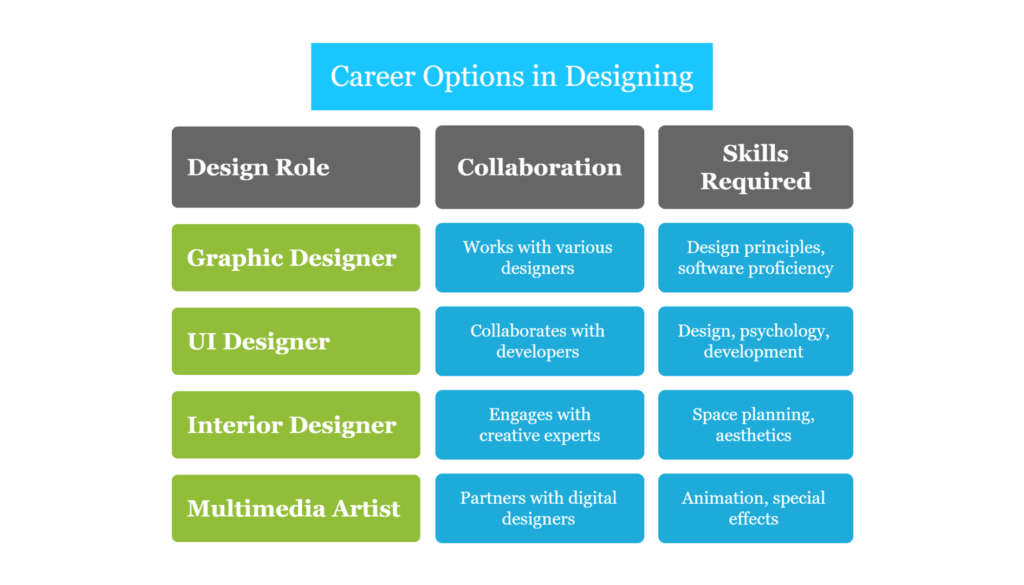
- AI and Automation Integration
- The World Economic Forum’s Future of Jobs Report 2025 highlights that while some jobs may be automated, new roles will emerge that require creative thinking, resilience, and adaptability.
- Jobs involving AI management, ethics, and implementation will see substantial growth.
- Skills-Based Hiring
- Employers are increasingly focusing on skills rather than traditional credentials, opening doors for candidates with non-traditional educational backgrounds.
- According to LinkedIn trends, skills-based hiring gained significant traction in 2024 and will continue to grow.
- Remote and Hybrid Work Evolution
- Flexible work arrangements have become a permanent fixture in the job market.
- Companies are developing more sophisticated remote work policies and technologies.
- Green Economy Growth
- Sustainability-focused roles are expanding across industries.
- Environmental consultants, renewable energy specialists, and sustainability managers are seeing increased demand.
- Healthcare Expansion
- The healthcare sector continues to be one of the largest growth areas.
- Beyond traditional roles, there’s increasing demand for health tech specialists, telehealth coordinators, and healthcare data analysts.
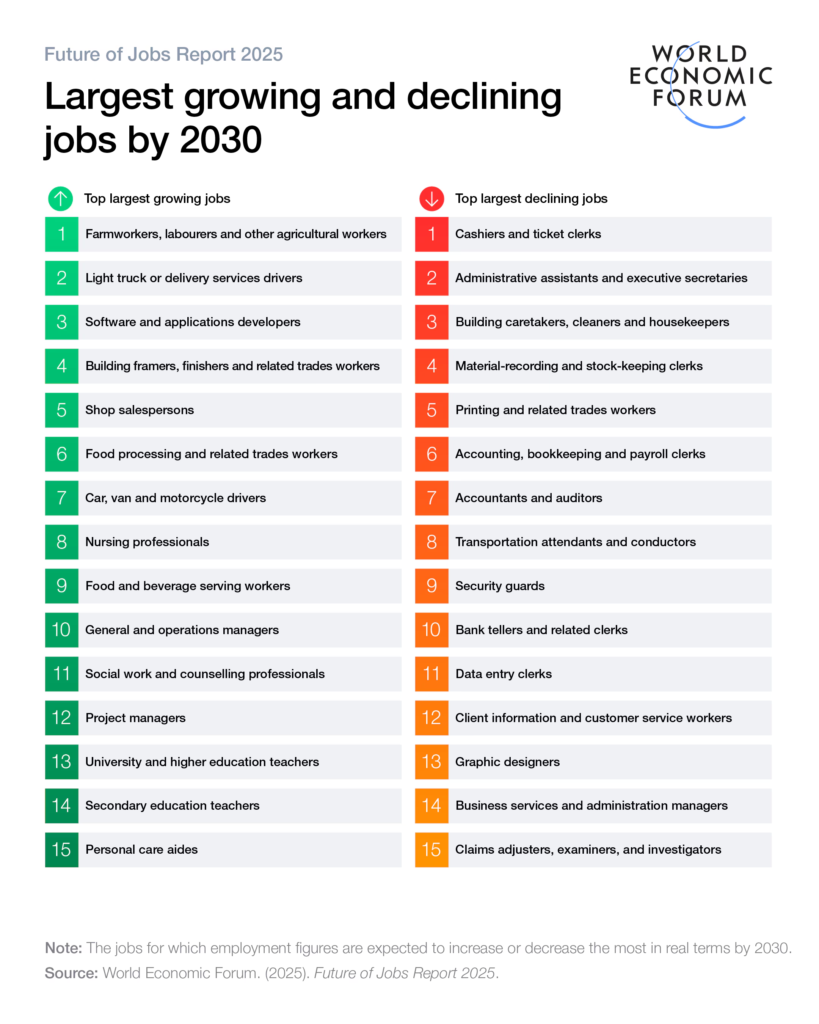
The World Economic Forum’s analysis shows the top skills needed for future careers, emphasizing analytical thinking, creative thinking, and resilience, flexibility, and agility.
7 Steps to Choose the Right Career Path:
- Self-Assessment and Reflection
- Identify your values, interests, and passions
- Understand your strengths and weaknesses
- Consider your personality type and work preferences
- Research and Exploration
- Investigate various industries and job roles
- Review job requirements and qualifications
- Research growth trends and future prospects
- Seek Educational Guidance
- Consult with career counselors
- Use career assessment tools
- Attend career fairs and informational sessions
- Get Practical Experience
- Pursue internships or part-time jobs
- Volunteer in fields of interest
- Participate in job shadowing opportunities
- Set Clear Goals
- Define short-term and long-term career objectives
- Create a timeline for achieving milestones
- Develop a flexible action plan
- Network and Seek Mentorship
- Connect with professionals in your field of interest
- Find mentors who can provide guidance
- Join professional associations and online communities
- Evaluate and Adjust
- Regularly reassess your career path
- Be open to pivoting if necessary
- Continue learning and developing new skills
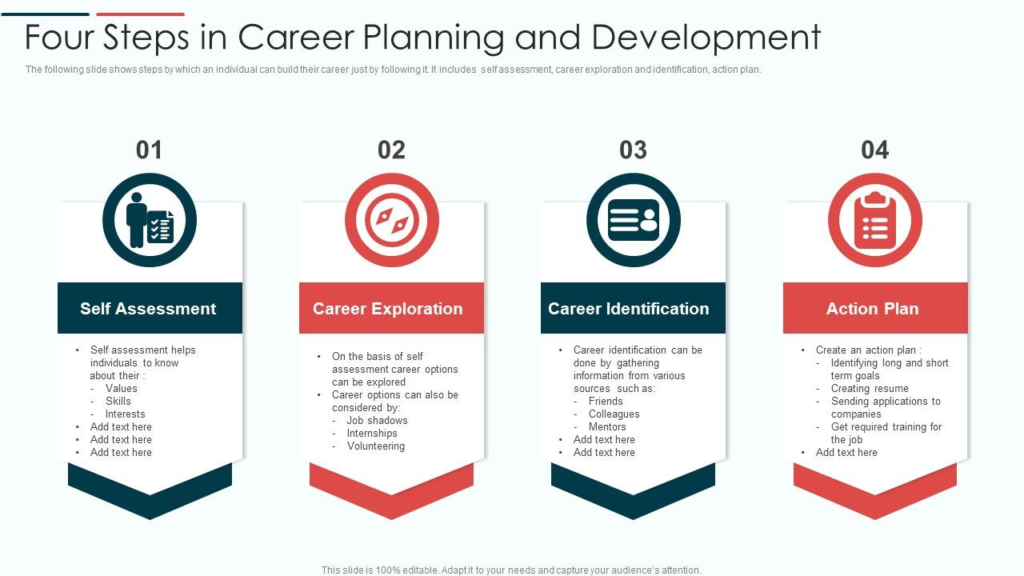
Essential Skills for Career Success in 2024-25:
Technical Skills:
- AI and Machine Learning Fundamentals
- Understanding how AI tools work and can be applied in your field
- Basic programming knowledge (Python, R)
- Data Literacy
- Ability to interpret and analyze data
- Data visualization and presentation skills
- Digital Fluency
- Proficiency with industry-specific software
- Cybersecurity awareness
- Cloud computing knowledge
Soft Skills:
- Adaptability and Flexibility
- Embracing change and uncertainty
- Learning agility and quick pivoting
- Critical Thinking and Problem-Solving
- Analytical reasoning
- Creative solution development
- Communication Skills
- Clear and effective written and verbal communication
- Digital communication etiquette
- Cross-cultural communication skills
- Emotional Intelligence
- Self-awareness and self-regulation
- Empathy and relationship management
- Collaboration and Teamwork
- Working effectively in diverse teams
- Virtual collaboration skills

Conclusion: Building a Sustainable Career Path
Careers after 12th, Graduation or B.Sc, B.Tech is not an easy job, the one which you chooses must be in accordance to your interest, strengths, job possibilities, demand in the market and future trends. And with a little exploration, some guidance and most certainly the right tools, you’ll traverse this path with every bit of confidence.
Don’t forget that career development isn’t a one-time choice, but a series of growth and development opportunities. In today’s fast-paced job market, it’s the ability to be flexible and keep learning and applying transferable skills that is key to long-term career success.
If youre interested in science, business, arts or new interdisciplinary fields – do your homework; get hands-on experience and match your career choices with what you love and what the market demands. You can create with the right guidance and preparation -— A career with tomorrow.fulfilling and sustainable career path that evolves with you and the changing world of work.

Next Steps for Career Exploration:
- would it not be advisable to allow there to be career surveys to helpsee what you are best suited and interested in doing.
- Use industry resources to explore certain careers in more details
- Use networking sites to join professional groups in your industry of interest.
- Look for internships/volunteer jobs to gain experience
- Design an individual learning plan that includes technical as well as behavioural learning
- Develop a personal relationship with a career counselor that offers pertinent advice and suggestions.
- Keep up with developments and likely opportunities in the field you have selected
By taking a methodical approach to career planning and remaining adaptable to change, you can build a successful professional journey that aligns with both your passions and the evolving demands of the job market.
